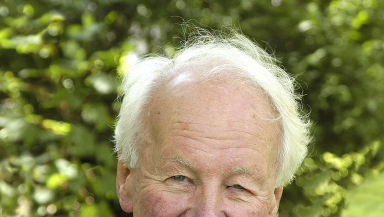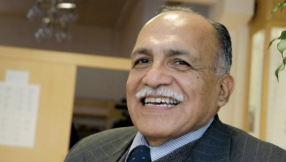
Had he not died in 2011, John Stott would have received his letter from the Queen this month– no doubt a letter different to the standard one, given he was her chaplain for 30 years. And the Queen wouldn't only have thanked him for her own encouragement in the faith, but also extended the thanks of a grateful world.
'Uncle John', as he was known by many in his later years, mentored and advised hundreds, travelled extensively, and authored over fifty books. His best-known work, Basic Christianity, sold two million copies in more than sixty languages.
But Stott's establishment credentials concealed a radical disposition. Although a priest in the Church of England, John Stott was a non-conformist. He understood and practised the – often neglected – biblical call for God's people to be different from the culture around them. John observed that in the four great sections of Scripture (the law, the prophets, the Gospels, and the letters), there is the same radical call to non-conformity. Israel was repeatedly warned against conforming to the surrounding nations.
Jesus challenged his disciples similarly. 'If we claim to be Christian,' wrote Stott, 'we must be like Christ.' John was not ambitious for himself, nor did he seek power, status, or wealth. His ministry wasn't one in which he needed to be the hero – in 1969 he established Langham Partnership to equip theological educators and Bible communicators in non-Western countries. The funds generated from his book sales went to support others' theological training – so they, in turn, could equip others.
John radically transformed the dominant Western evangelical understanding of mission, particularly through his commitment to 'double listening'. He described this as 'listening to two voices at the same time, the voice of God through Scripture and the voices of men and women around us. These voices will often contradict one another, but our purpose in listening to them both is to discover how they relate to each other. Double listening is indispensable to Christian discipleship and Christian mission.' Crucially, John didn't just call for it – he lived it.
He listened to the often-ignored voices of the majority world in Latin America, Asia, and Africa in a way that few white leaders had done before, and the experience changed his theology, not least regarding the centrality of social activism in mission. The 1974 Lausanne Covenant, of which John was chief architect, expressed 'penitence both for our neglect and for having sometimes regarded evangelism and social concern as mutually exclusive ... we affirm that evangelism and socio-political involvement are both part of our Christian duty.'
John not only practised double listening but he allowed that listening to flow into every area of his life and called others to do the same. With that goal he established LICC in 1982 to help Christians engage the world with the gospel by living as whole-life disciples in every area of life and work.
In The Contemporary Christian, published in 1992 (and if you're a friend of ours, you've probably heard it!), John wrote that, 'It is a wonderful privilege to be a missionary or a pastor, if God calls us to it. But it is equally wonderful to be a Christian lawyer, industrialist, politician, manager, social worker, television scriptwriter, journalist or homemaker, if God calls us to it. According to Romans 13:4 an official of the state (whether legislator, magistrate or police officer) is just as much a 'minister of God' (diakonos theou) as a pastor. It is the hierarchy we have to reject; the pyramid we have to demolish.'
In his last book, The Radical Disciple, John noted how the word radical is derived from the Latin word radix, a root. Originally applied as a political label, he explained how it came to be applied more generally to those whose stances and commitments went to the roots. In his own commitment to biblical Christianity, John was unquestionably a radical.
As we reflect on a life well-lived and the legacy John leaves, let's recommit ourselves to being like Christ and living as his disciples in all of life, whoever and wherever we are.
Paul Woolley is CEO of the London Institute for Contemporary Christianity, which was founded by John Stott in 1982.













